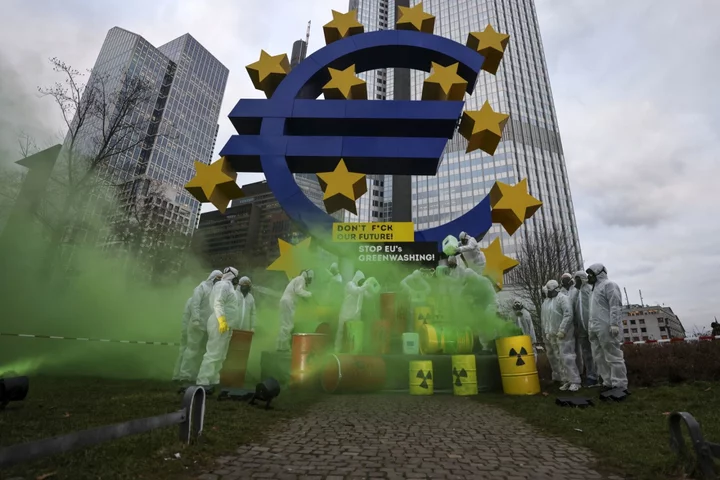(Bloomberg) --
Global climate diplomacy is still moving at a glacial pace, even as actual glaciers melt at a faster rate than ever.
For the past few years, the big fight has focused on whether all 192 countries in the United Nations can agree to “phase out fossil fuels” and put the phrase into the final communique of the annual COP climate summit. The outcome has been an easy way for news organizations to judge if the meetings were a success or failure. That’s why, months before COP28 is held in the United Arab Emirates, European diplomats are thinking about workarounds.
It’s frustrating to watch, veteran climate diplomat Pete Betts told the Financial Times. The wording of an agreement shouldn’t be the barometer of how the world is progressing in the fight against global warming, he says. It should be documents called “nationally determined contributions” (NDCs) that each country submits in the run up to COP meetings.
Betts was a key UK negotiator involved in securing the Paris Agreement in 2015 and, since then, has remained one of the most respected thinkers on the climate problem, advising various countries including his own. Last year, after turning 63, he was diagnosed with brain cancer and given months to live. In a moving reflection published last week, he says that COP meetings are “wildly misunderstood.”
Under the Paris Agreement, every country committed to making changes that will help keep global average temperature rise well below 2C and ideally below 1.5C. NDCs contain the list of initiatives a country will make toward that goal — and that’s where the real measure of progress is to be found.
That’s one reason why, weeks before a COP meeting starts, the UN publishes a “synthesis report” that collates all the promises countries have made and what level of warming the world will experience if those pledges are met. The 2022 report found that the world was on track to warm between 2.1C and 2.9C by the end of the century, a catastrophic outcome for the planet.
Betts is right that analyzing NDCs and holding governments to account over their contents is crucial. Especially because the documents set out targets and goals for the coming decade, which require shorter-term targets than net zero goals that are decades away.
The problem is that analyzing NDCs is much more complex than parsing a single statement at the end of a conference. The work can take skilled analysts weeks to complete, and that’s when countries put in the work to drill down into the details needed.
“The process of writing and updating NDCs is extremely important and should be taken much more seriously by governments,” said Hanna Fekete of the NewClimate Institute, an environmental nonprofit. “We don’t really see that happening.”
Let’s consider Turkey, which ranked 13 among the world’s largest emitters of carbon dioxide in 2021. It submitted a five-page document in 2015 that stated its targets.
One of its goals was to reach 10 gigawatts of solar power capacity by 2030. The country almost accomplished that in2021, according BloombergNEF, but, instead of raising its ambitions, Turkey kept its solar target the same when it simply re-submitted the document before COP26.
Climate Action Tracker, which has dozens of analysts focused on NDCs, including Fekete, published a 7,000-word analysis of Turkey’s commitments. It assigned the country an overall rating of “critically insufficient,” the lowest grade in its ranking, with a comprehensiveness rating of “poor.”
Then in 2022, the country announced a net zero by 2053 goal, but didn’t share any plans of how it will get there. In April, the country submitted an updated NDC that’s 43 pages long. Climate Action Tracker says its new analysis will be available this month.
The time it takes Climate Action Tracker to complete its analysis can range from days to weeks, depending on the complexity of the document. The process has been getting a little more streamlined as more countries update their NDCs and start using some common methodology.
As more minds focus on what’s needed to tame global temperatures, analysis of the documents is also getting more nuanced. But there’s still plenty of room to fake it. “If a country wants to keep its targets ambiguous, they still can,” said Fekete.
Akshat Rathi writes the Zero newsletter, which examines the world’s race to cut emissions. You can email him with feedback. His book Climate Capitalism will be published later this year.

